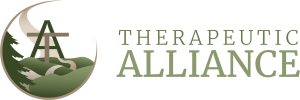Covid 19
We Are Still Operating!
Therapeutic Alliance adapts to telehealth because of COVID-19
While social distancing and stay-at-home warnings prompt changes in behavioral treatments, we are still here for our clients and staff.
It is important that individuals with mental health conditions continue their treatment during the COVID-19 pandemic and prevent or address any worsening symptoms caused by increased stress and anxiety. You or anyone you know of are in need of mental health assistance, please reach out to us at: info@taculture.com or (833) 319-0526.
Therapeutic Alliance is adapting our approach to mental health services delivery due to COVID-19. The Department of Medical Assistance Services (DMAS) has requested all mental health providers to limit the amount of face to face contact with clients and adopt virtual technology to help children and families in our community.
Therapeutic Alliance will continue to provide all of our comprehensive mental health services throughout Virginia employing video and voice technology assistance. Our team of professionals will continue to provide Intensive In Home, Mental Health Skill Building and Applied Behavior Analysis for our current and any new clients that need our service as we continue to accept new clients.
Stay healthy and please remember to follow all CDC guidelines, local, state, and federal official instructions and practice social distancing.
We are here to help.
Please reach out to us at: info@taculture.com or (833) 319-0526.
COVID-19 advice for the public
What is coronavirus disease 2019 (COVID-19)?
Coronavirus disease 2019 (COVID-19) is a respiratory illness that can spread from person to person. The virus that causes COVID-19 is a novel coronavirus that was first identified during an investigation into an outbreak in Wuhan, China.
Can people in the U.S. get COVID-19?
Yes. COVID-19 is spreading from person to person in parts of the United States. Risk of infection with COVID-19 is higher for people who are close contacts of someone known to have COVID-19, for example healthcare workers, or household members. Other people at higher risk for infection are those who live in or have recently been in an area with ongoing spread of COVID-19.
Have there been cases of COVID-19 in the U.S.?
Yes. The first case of COVID-19 in the United States was reported on January 21, 2020. The current count of cases of COVID-19 in the United States is available on CDC’s webpage HERE
How does COVID-19 spread?
The virus that causes COVID-19 probably emerged from an animal source, but is now spreading from person to person. The virus is thought to spread mainly between people who are in close contact with one another (within about 6 feet) through respiratory droplets produced when an infected person coughs or sneezes. It also may be possible that a person can get COVID-19 by touching a surface or object that has the virus on it and then touching their own mouth, nose, or possibly their eyes, but this is not thought to be the main way the virus spreads. Learn what is known about the spread of newly emerged coronaviruses HERE
What are the symptoms of COVID-19?
Patients with COVID-19 have had mild to severe respiratory illness with symptoms of
- fever
- cough
- shortness of breath
What are severe complications from this virus?
Some patients have pneumonia in both lungs, multi-organ failure and in some cases death.
How can I help protect myself?
People can help protect themselves from respiratory illness with everyday preventive actions.
• Avoid close contact with people who are sick.
• Avoid touching your eyes, nose, and mouth with unwashed hands.
• Wash your hands often with soap and water for at least 20 seconds. Use an alcohol-based hand sanitizer that contains at least 60% alcohol if soap and water are not available.
If you are sick, to keep from spreading respiratory illness to others, you should
- Stay home when you are sick.
- Cover your cough or sneeze with a tissue, then throw the tissue in the trash.
- Clean and disinfect frequently touched objects and surfaces.
What should I do if I recently traveled from an area with ongoing spread of COVID19?
If you have traveled from an affected area, there may be restrictions on your movements for up to 2 weeks. If you develop symptoms during that period (fever, cough, trouble breathing), seek medical advice. Call the office of your health care provider before you go, and tell them about your travel and your symptoms. They will give you instructions on how to get care without exposing other people to your illness. While sick, avoid contact with people, don’t go out and delay any travel to reduce the possibility of spreading illness to others.
Is there a vaccine?
There is currently no vaccine to protect against COVID-19. The best way to prevent infection is to take everyday preventive actions, like avoiding close contact with people who are sick and washing your hands often.
Is there a treatment?
There is no specific antiviral treatment for COVID-19. People with COVID-19 can seek medical care to help relieve symptoms.


